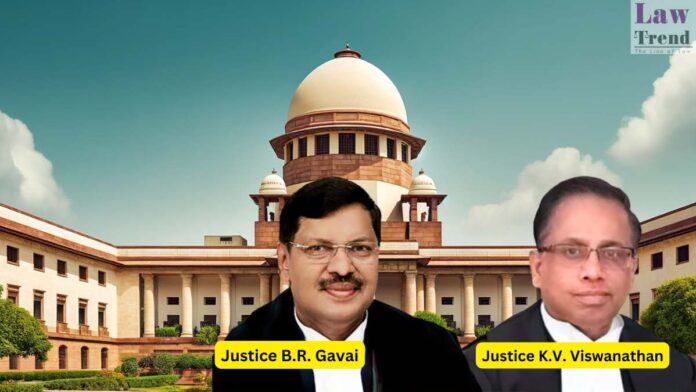In a pivotal ruling, the Supreme Court of India reinforced the principle that individuals who are similarly situated to those who have already been granted relief by courts should not be required to initiate separate legal proceedings for the same benefits. The judgment, delivered in favour of Lt. Col. Suprita Chandel in Civil Appeal No. 1943 of 2022, directed the government to grant her Permanent Commission in the Army Dental Corps (ADC) and extend all related benefits.
This ruling not only resolved Lt. Col. Chandel’s decade-long legal battle but also set an important precedent for future cases involving service conditions and equality before the law.
Background of the Case
Lt. Col. Chandel was commissioned into the ADC in 2008 as a Short Service Commissioned (SSC) officer, with the possibility of securing a Permanent Commission through a departmental examination. Under the policy at the time, she was eligible for three attempts to qualify. After two unsuccessful attempts, she was preparing for her third, but a policy amendment in March 2013 altered the eligibility criteria, reducing the maximum age limit and limiting attempts for officers without postgraduate qualifications. These changes rendered her ineligible for the third attempt.
Simultaneously, a batch of SSC officers similarly impacted by the amendments challenged the policy before the Armed Forces Tribunal (AFT), Principal Bench, New Delhi, in Original Application No. 111 of 2013. Although the AFT upheld the validity of the amended policy, it granted one-time relief to the petitioners, directing the government to consider them under the pre-amendment rules. This relief, however, was not extended to other officers like Lt. Col. Chandel, who had not been a party to that case.
Lt. Col. Chandel, who was on maternity leave at the time of the litigation, found herself excluded from the benefits granted to her peers. Her multiple representations to the government and subsequent petitions to the AFT were dismissed, leaving her no option but to approach the Supreme Court.
Legal Issues Before the Supreme Court
The Supreme Court examined three critical issues:
1. Parity in Relief: Should judicial relief granted to one group of individuals extend automatically to others who are similarly situated?
2. Discriminatory Exclusion: Whether denying benefits solely because an individual was not a party to the original litigation violates the principle of equality.
3. Government Accountability: Whether the government has a responsibility to ensure uniform application of court judgments without forcing others to file separate cases.
Observations and Rationale of the Supreme Court
The bench, comprising Justice K.V. Viswanathan and Justice B.R. Gavai, ruled emphatically in favour of Lt. Col. Chandel. The court highlighted that judicial relief must extend to all similarly placed individuals to prevent undue hardship and unnecessary litigation.
1. On Equality and Justice:
“Where a citizen aggrieved by an action of the government has approached the court and obtained a declaration of law in his/her favour, others similarly situated ought to be extended the benefit without the need for them to go to court,” the court observed.
2. On Administrative Responsibility:
The court criticized the government for its rigid stance, stating that denying relief to Lt. Col. Chandel on technical grounds would result in “an unfair scenario.” It compared the case to that of soldiers serving in adverse conditions, emphasizing the injustice of requiring each one to litigate separately for identical relief.
3. On Precedents:
Citing earlier judgments in Amrit Lal Berry v. Collector of Central Excise (1975) and K.I. Shephard v. Union of India (1987), the court reiterated that judicial decisions must not be restricted only to the petitioners, particularly in cases involving systemic issues.
4. On Delay:
Addressing concerns about delay in filing, the court noted that Lt. Col. Chandel had been pursuing her case since 2014 but faced hurdles due to her postings in remote areas and the challenges posed by the COVID-19 pandemic. It emphasized that such delays should not prevent justice in cases of clear discrimination.
Final Decision and Directions
The court ruled that Lt. Col. Chandel was unjustly excluded from the benefits granted to her peers in the 2014 AFT judgment. The Supreme Court exercised its powers under Article 142 of the Constitution, which allows it to pass orders to ensure complete justice.
The government was directed to:
Grant Permanent Commission to Lt. Col. Chandel from the same date as her peers who benefited from the AFT decision in 2014.
Provide seniority, promotions, and monetary arrears to reflect her rightful position in service.
Complete the implementation of these directions within four weeks.




